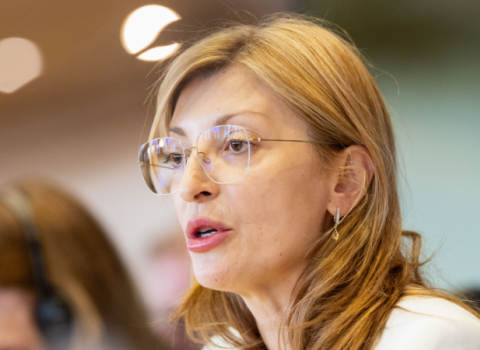Europe needs to look again at the structural frailties that are blunting its innovation performance, and make a fresh effort to update and improve things.
This was Máire Geoghegan-Quinn’s message to the Lisbon Council as she reached the mid-point of her term in office. Reprising progress to date, the Research and Innovation Commissioner told delegates, “The longer I am in the job, the more I realise how profound the changes have to be, if we are to win the innovation race.”
Top of the list for profound change are two long-running drags on innovation - intellectual property rights and standards. IP has moved out of the legal sphere to become political and highly sensitive, whilst the process of agreeing standards is simply too slow, the Commissioner said.
Standards setting is a dry, technical issue, but it is of immense strategic importance and there is concern about the length time it takes, particularly in competitive and innovative sectors, where speed is of the essence. “For me, the critical issue is how we strengthen our position within the international standards environment,” said Geoghegan-Quinn, delivering the 2012 Robert Schuman Lecture at the Lisbon Council’s Innovation Summit in Brussels on Tuesday (2 October).
The Commission recently called for an independent review of European standards, which will take place in 2013. “I will certainly be giving this my full attention,” promised Geoghegan-Quinn.
Objective economic analysis
IP has moved from being the preserve of legal specialists to become “political and highly sensitive”, the Commissioner said. Europe needs a legal framework for IP that supports growth, and what is missing is an “objective economic analysis,” to underpin this. Geoghegan-Quinn said she will be raising the matter with Commission colleagues in the coming months, and using economics research carried out under Framework Programme 7 to help formulate her position.
At the same time, she will be monitoring progress towards the creation of the single European Research Area, an initiative that Geoghegan-Quinn noted rarely features on lists of the key structural reforms that are needed to promote innovation and growth, “but should do”, she said.
There is little in this to set the pulse racing, or that the Lisbon Council has not heard and debated many times before. But in these “unprecedented times” innovation “has become a critical part of the bigger picture” and needs to be the centrepiece of building a “resilient economy,” Geoghegan-Quinn said.
Knowledge flows
To be successful, member states not only need to offer the best tax, infrastructure, talent and regulatory environments, they have to invest in R&D and education, and create vibrant investment and innovation ecosystems that encourage knowledge flows. Geoghegan-Quinn said the Commission is playing its part here in its proposed 2014 – 2020 EU budget, which is proposing to increase R&D funding from €50 billion in Framework Programme 7 to €80 billion in Horizon 2020.
While this looks like what she called a “no-brainer”, Geoghegan-Quinn said she’s worried that in the upcoming negotiations over the budget, research and innovation may be particularly vulnerable. “Halfway through my mandate, I feel that a lot has been done, but there is a lot more to do, and there are some tough battles I have to win,” the Commissioner concluded.





 A unique international forum for public research organisations and companies to connect their external engagement with strategic interests around their R&D system.
A unique international forum for public research organisations and companies to connect their external engagement with strategic interests around their R&D system.